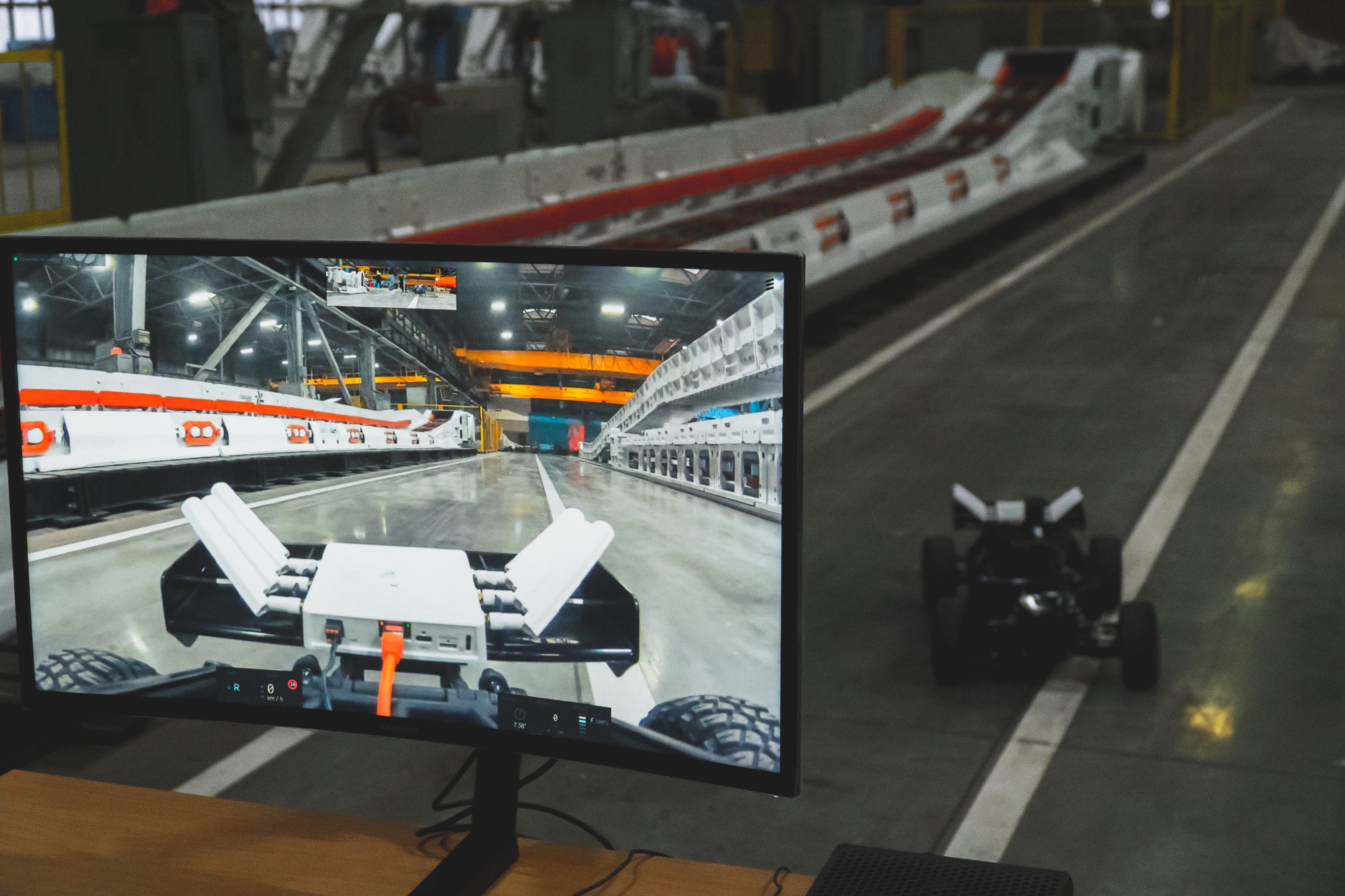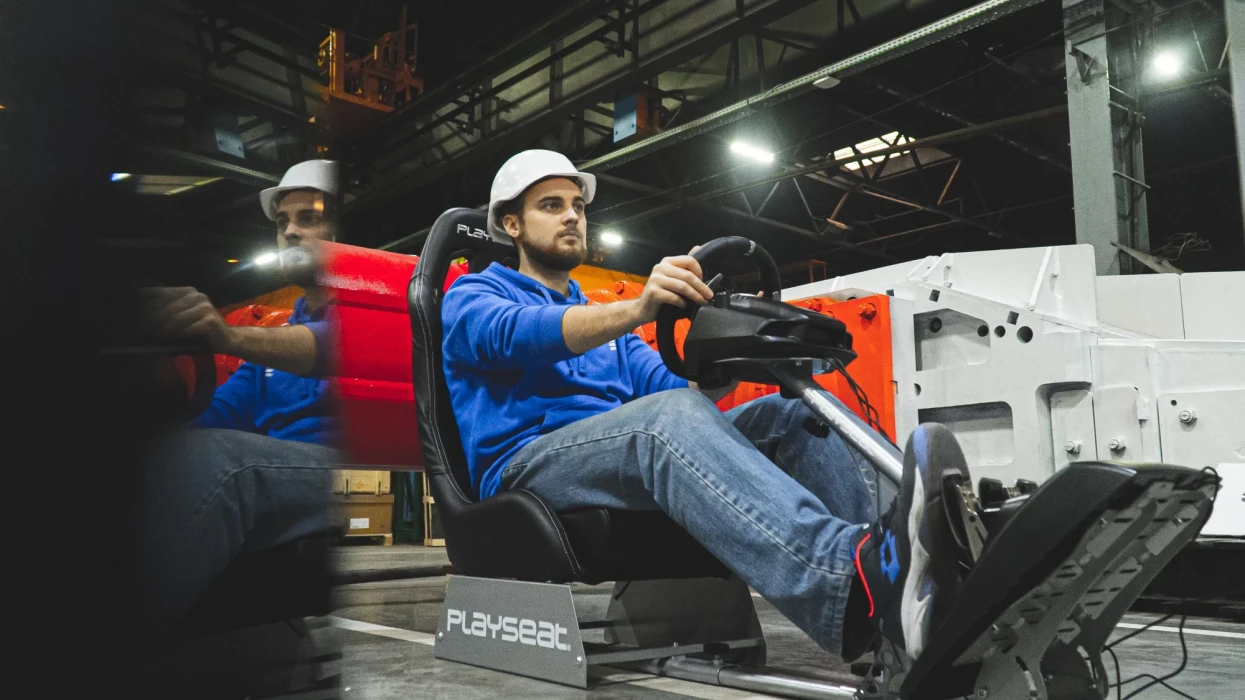Successful tests of an electric car – a solution for remote vehicle control via the 5G network – were conducted at the Corum Svitlo Shakhtaria (DTEK Energo) machine-building plant in Kharkiv. The testing of the electric car was part of the first pilot project of the Smart Factory, a 5G digital enterprise in Ukraine.

The solution runs on Private Network 5G implemented by Vodafone and Ericsson at the plant. The innovation makes it possible to replace the traditional production line with unmanned trolleys programmed for the needs of a particular enterprise, and significantly optimize the production process. Remote control increases personnel safety because the operator of the electric vehicle works in a safe place and performs high-risk work without risk to life.
Through the electric car’s video cameras the remote control center operator is able to see the full HD picture of what is happening around, and the 5G modem built into the electric car provides high speed data exchange. The electric car responds instantly to operator commands with a delay of only 20 milliseconds (i.e., 0.02 seconds). Thus, the operator feels the effect of direct control as if he were driving the vehicle in person, rather than with a remote lag.
A similar solution is already being used at Daimler's Factory 56 in Sindelfingen where hand tools and unmanned carts are connected to Ericsson's dedicated 5G network to optimize the car assembly process.
Last summer, Vodafone Ukraine together with DTEK Energo, Ericsson, and Corum Group announced the launch of Ukraine's first Smart Factory 5G project at the Corum Svitlo Shakhtaria machine-building plant in Kharkiv. As part of the project, the plant has deployed a 5G Private Technology Network currently integrating mobile devices, production equipment, control devices as well as remote and automated control systems.
Videos about Smart Factory 5G can be viewed at: https://youtu.be/zCXH68UqcNc.







